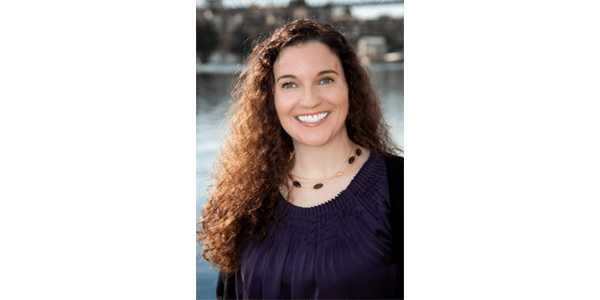Whether she’s inspiring undergraduates to explore new areas of knowledge or unlocking the scientific curiosity of K-12 students, Dianne Hendricks looks for ways to make a lasting impact. The new full-time lecturer in UW Bioengineering brings to her role expertise in laboratory teaching, mentoring and outreach. “There are certain opportunities you’ll remember and can direct you,” she says, and she is working to create those at UW Bioengineering.
Dr. Hendricks joined the faculty in January 2014 after spending several years at Duke University, earning her PhD in genetics in May 2010 and working in various teaching and mentorship roles. In BIOE, she will teach two courses for undergraduate majors, BIOEN 215, Introduction to Bioengineering Problem Solving, and BIOEN 410, Bioengineering Honors Seminar. She will also develop new laboratory modules for undergraduate courses that will incorporate molecular biology and genetic/tissue engineering topics, and help develop courses and curriculum as a member of the department’s Curriculum Committee. Interested in creating educational outreach opportunities for K-12 students, she is also launching the department’s new Summer Camp for high school students.
Move to bioengineering, UW
Dr. Hendricks came to bioengineering with a broad background in molecular and cellular biology. She discovered bioengineering entirely by chance: at Duke, she took on a newly-created teaching laboratory administrator position, responsible for more tightly integrating biology topics into the existing curriculum. In this role, she developed and supervised wet labs, trained teaching assistants and designed new experiments. Immediately she was “hooked” on bioengineering, and enjoyed it further the more she learned about ways bioengineers apply biology and engineering principles to solve real-world problems related to human health.
Her move to UW Bioengineering was motivated by the opportunities she saw to enhance students’ educational experiences through the department’s close relationship with the UW School of Medicine. Another draw was UW’s strong dedication to serving the community at large. Believing that the UW serves a vital role as a resource to Washington state, she says it’s important to her to join fellow faculty to “share passion for what they do” in a way that benefits students at UW and beyond. With this philosophy at heart, she is eager to work with a diverse undergraduate student body as well as engage with K-12 students in local schools.
Creating opportunities for education and outreach
Teaching and mentoring has been an important part of Dr. Hendricks’s life since an early age. Growing up in Los Alamos, New Mexico (best known for being the home of the Manhattan Project and Los Alamos National Laboratory), she became accustomed to living in a scientific, highly educated community. However, when she left for college at the University of Texas at Austin, she realized that not everyone was raised in such an environment and saw an opportunity for introducing young people to science and engineering.
She participated in a variety of outreach activities in high school, and as an undergraduate was involved in a tutoring program that supported elementary school students in a low-resource and underserved area. She went on to lead numerous K-12 outreach initiatives at Duke, including the university’s Biosciences and Engineering Camp for middle school students.
K-12 education and outreach is particularly enjoyable for Dr. Hendricks because of the impact that young peoples’ fresh perspectives makes upon her own work. “Kids always have a different way of looking at something,” she explains, and she finds that their questions and insights renew her approach to specific problems. At UW BIOE, she looks forward to applying her enthusiasm for teaching young people to her role overseeing BIOE’s new Summer Camp, an immersive, week-long educational day camp for rising 9th and 10th graders.
A place in the UW Bioengineering community
Being new to UW BIOE, Dr. Hendricks immediately appreciated the faculty welcoming her into the close-knit, highly collaborative department community. She finds the department’s academic programs unique, she says; particularly interesting to her is the undergraduate program’s cohort structure, in which undergraduates move through the curriculum together from sophomore through senior year. This way of teaching undergraduates results in the students being well cared for and having an optimal educational experience, she says.
Jumping into her teaching responsibilities this spring quarter with BIOEN 215, Dr. Hendricks is eager to work with UW BIOE undergraduates from the start to the finish of their study in the program. “I hope to be a constant resource for them,” she explains. She also looks forward to contributing her biologic science expertise to the undergraduate curriculum. In the future, she is especially interested in developing biology-related capstone projects, and plans to reach out to departments across the medical school and biologic sciences to find exciting opportunities for students.


